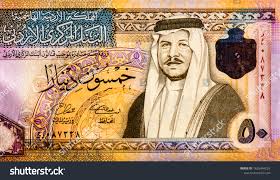The Role of the King of Jordan in Middle Eastern Politics

Introduction
The role of the King of Jordan, currently King Abdullah II, is vital in the context of Middle Eastern politics. With his leadership since 1999, he has navigated complex regional dynamics, marked by conflicts and opportunities for peace. As a significant player in promoting stability in the region, understanding the King’s influence is essential for comprehending the broader geopolitical landscape.
Recent Developments
In recent months, King Abdullah II has been at the forefront of various diplomatic initiatives aimed at fostering peace and cooperation among neighbouring countries. His administration has emphasised the importance of finding a resolution to the ongoing Israeli-Palestinian conflict, advocating for a two-state solution as the most viable path to long-term peace. As one of the few stable monarchies in the region, Jordan has positioned itself as a mediator between conflicting parties.
Moreover, the King has strengthened ties with Western nations, particularly the United States. In July 2023, he visited Washington D.C. to discuss security cooperation and the humanitarian crisis stemming from the Syrian civil war, which has seen millions of refugees enter Jordan. This ongoing situation puts additional strain on the nation’s resources and highlights Jordan’s strategic importance as a stabilising force in an increasingly tumultuous region.
Internal Challenges
Domestically, King Abdullah II faces several challenges, including economic difficulties exacerbated by the pandemic and rising inflation. The King has implemented numerous reforms aimed at improving the economic situation, including investing in technology and renewable energy sectors. These efforts reflect his commitment to modernising the economy while balancing sociopolitical pressures within the kingdom.
Conclusion
The significance of the King of Jordan extends beyond his nation; he plays a crucial role in regional diplomacy and stability. As King Abdullah II navigates the challenges of leadership amidst both internal and external pressures, his actions will likely influence the future of Jordan and the broader Middle East. Observers predict that his continued advocacy for peace and cooperation will be critical in shaping the region’s trajectory in the coming years. The King’s ability to maintain stability in Jordan not only affects his country’s citizens but also impacts the geopolitical landscape of the entire region.








